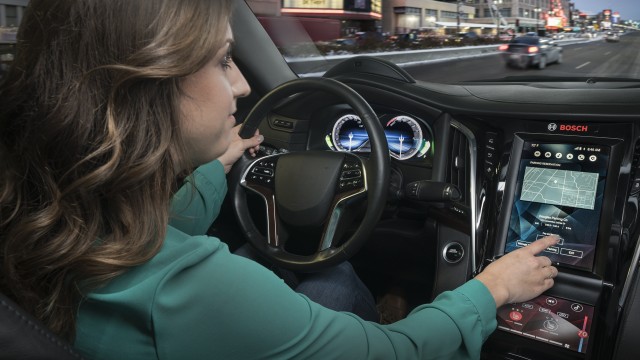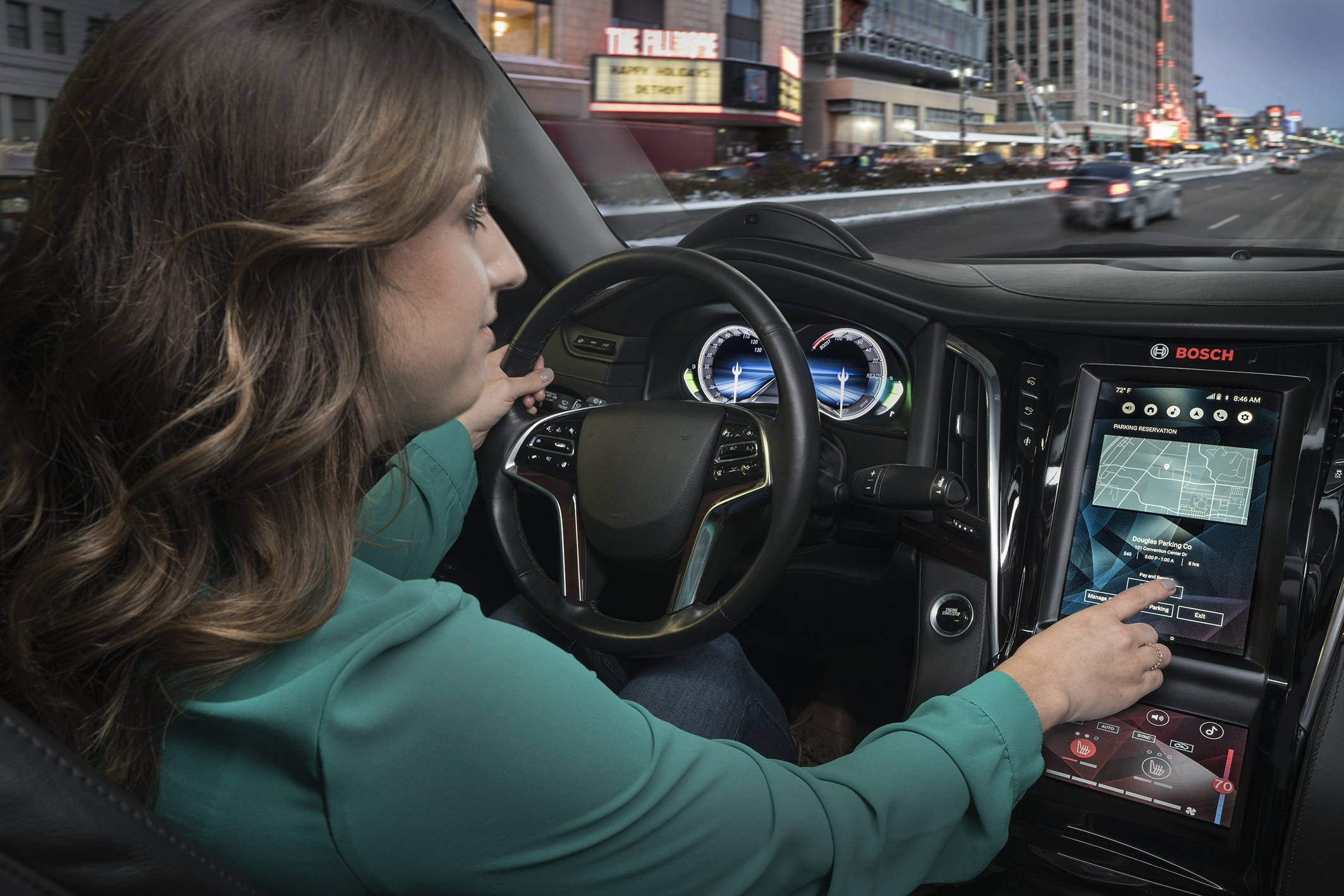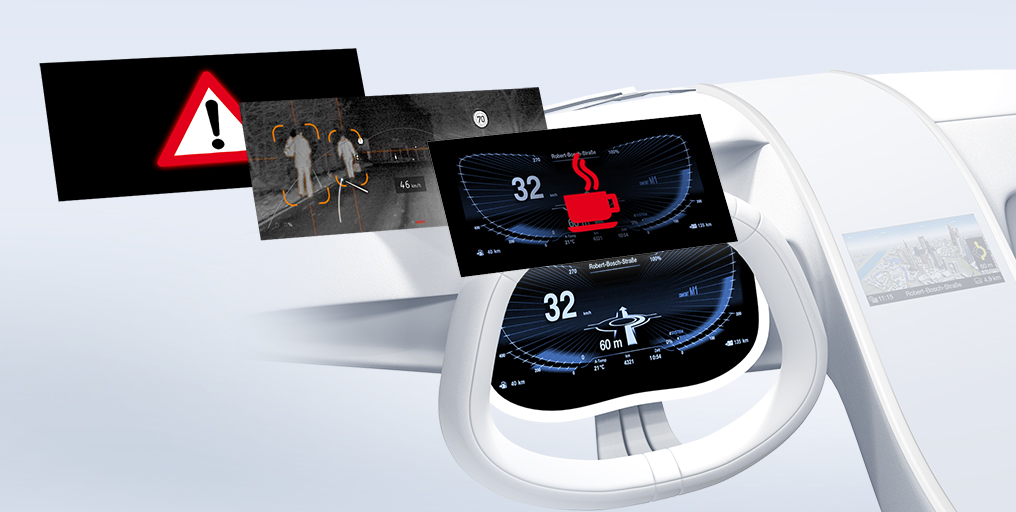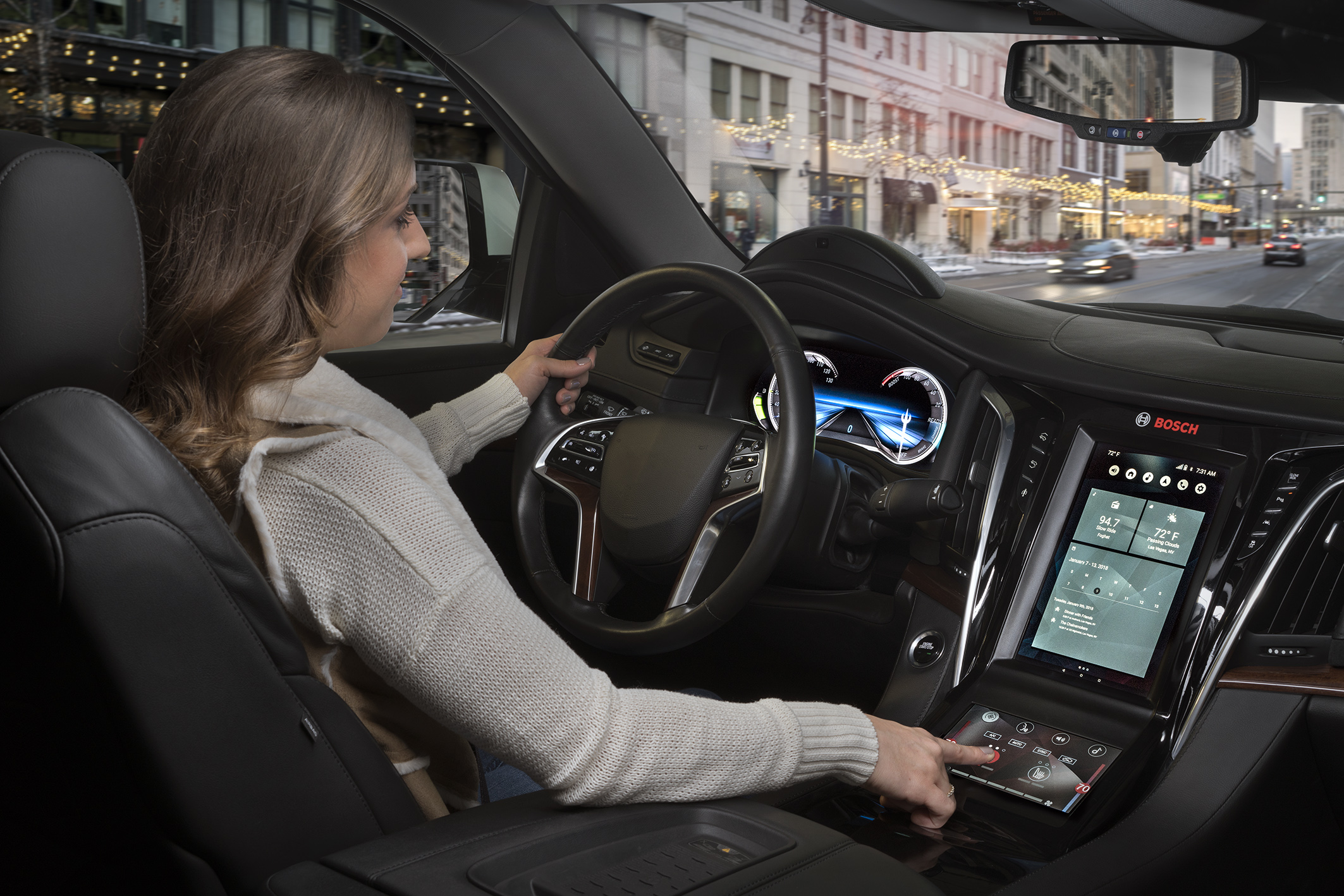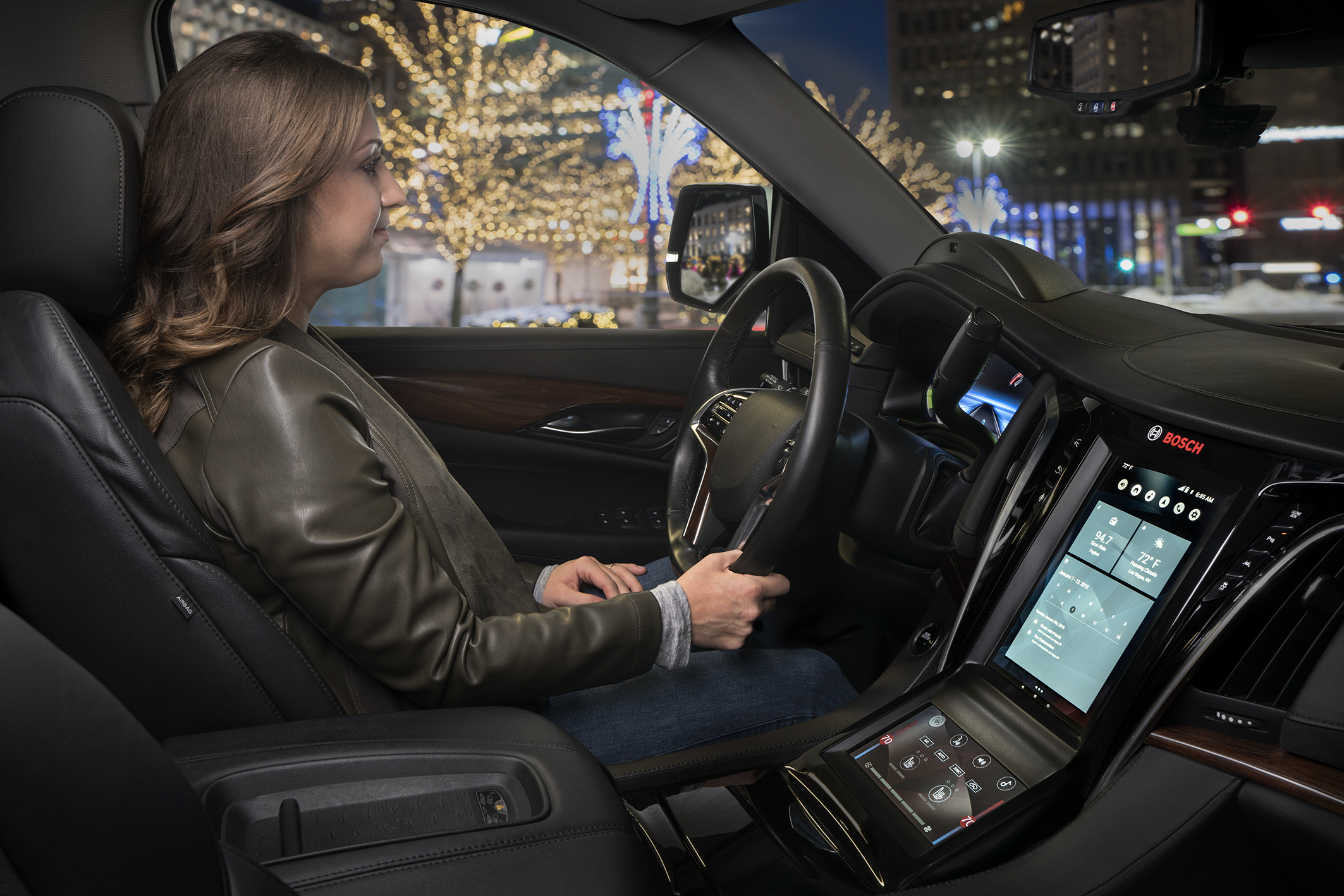Hildesheim, Las Vegas – For years, touchscreens, handwriting recognition, and gesture control have been gradually replacing conventional mechanical buttons and switches in the car – to the detriment of road safety. After all, controlling the navigation system, the on-board computer menu, or the radio is a distraction. At CES 2018, in Las Vegas, Bosch is showcasing smart cockpit technology that lets drivers concentrate on driving. Eyes can be kept where they should be: on the road. “We are uncluttering the cockpit. The more complex the technology in modern vehicles, the simpler and more intuitive control systems need to be,” says Dr. Steffen Berns, the president of Bosch Car Multimedia. Artificial intelligence helps transform the human-machine interface (HMI) into a command center that thinks ahead. “Initial functionalities with artificial intelligence feed valuable information into the HMI about the driver, the vehicle, and the surroundings. That enables proactive adjustment of displays and controls to any given driving situation,” Berns says. Bosch also draws on this information for the development of automated driving. Here too, HMI is the core element that allows optimal interplay between people and vehicles.
Mobility is the largest Bosch Group business sector. It generated sales of 55.8 billion euros in 2024, and thus contributed around 62 percent of total sales. This makes the Bosch Group one of the leading mobility suppliers. Bosch Mobility pursues a vision of mobility that is safe, sustainable, and exciting. For its customers, the outcome is integrated mobility solutions. The business sector’s main areas of activity are electrification, software and services, semiconductors and sensors, vehicle computers, advanced driver assistance systems, systems for vehicle dynamics control, repair-shop concepts, as well as technology and services for the automotive aftermarket and fleets. Bosch is synonymous with important automotive innovations, such as electronic engine management, the ESP anti-skid system, and common-rail diesel technology.
The Bosch Group is a leading global supplier of technology and services. It employs roughly 412,000 associates worldwide (as of December 31, 2025). According to preliminary figures, the company generated sales of 91 billion euros in 2025. Its operations are divided into four business sectors: Mobility, Industrial Technology, Consumer Goods, and Energy and Building Technology. With its business activities, the company aims to use technology to help shape universal trends such as automation, electrification, digitalization, connectivity, and an orientation to sustainability. In this context, Bosch’s broad diversification across regions and industries strengthens its innovativeness and robustness. Bosch uses its proven expertise in sensor technology, software, and services to offer customers cross-domain solutions from a single source. It also applies its expertise in connectivity and artificial intelligence in order to develop and manufacture user-friendly, sustainable products. With technology that is “Invented for life,” Bosch wants to help improve quality of life and conserve natural resources. The Bosch Group comprises Robert Bosch GmbH and its roughly 490 subsidiary and regional companies in over 60 countries. Including sales and service partners, Bosch’s global manufacturing, engineering, and sales network covers nearly every country in the world. Bosch’s innovative strength is key to the company’s further development. At 136 locations across the globe, Bosch employs some 82,000 associates in research and development.
Additional information is available online at www.bosch.com, www.bosch-press.com.
